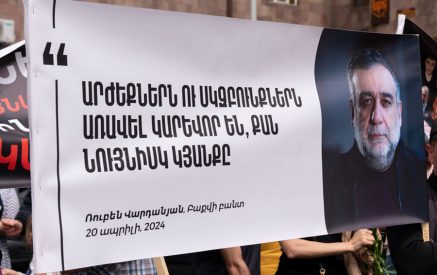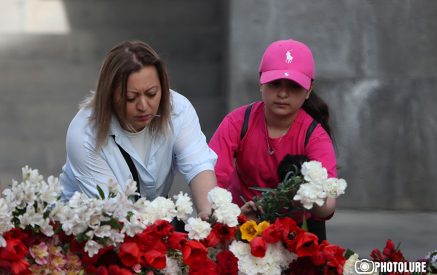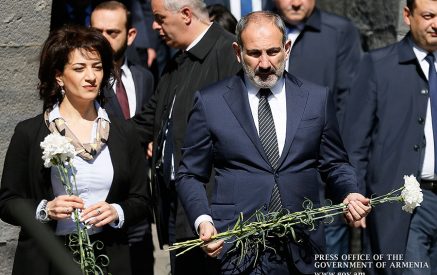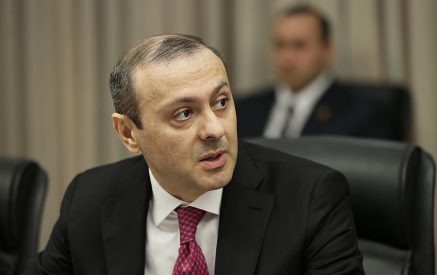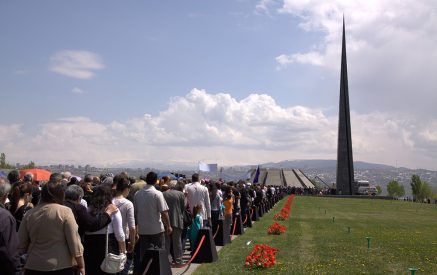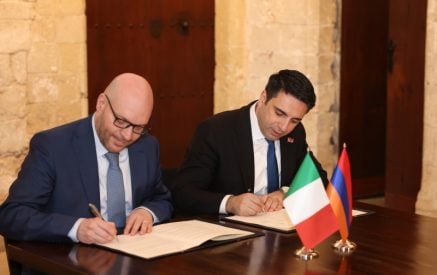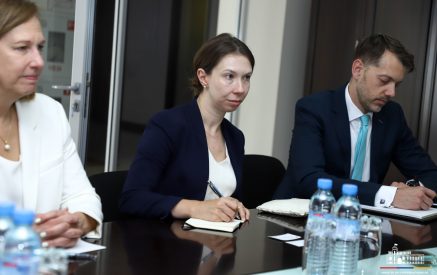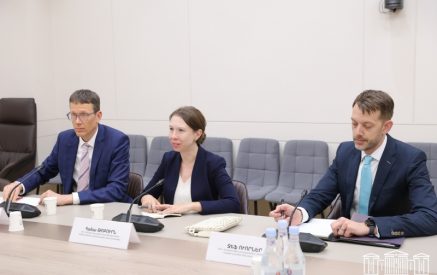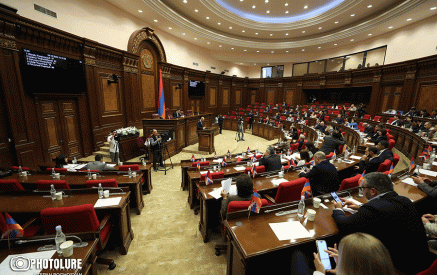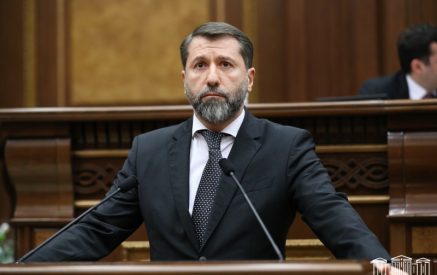According to Peter Bussjäger, it is not up to the Venice Commission to decide whether Armenia has fulfilled its tasks or not. He stated, “We give recommendations.”
“Yes, there are urgent problems, as elaborated by the officials,” Peter Bussjäger, one of the authors of the opinion on the draft amendments to the RA Judicial Code and the Constitutional Law on the Constitutional Court, told Aravot. The Venice Commission has published an opinion on the draft laws amending the Judicial Code and the Constitutional Law of the Constitutional Court on March 21.
The Minister of Justice of Armenia, Karen Andreasyan, addressed a corresponding request to the commission with a letter dated December 16, 2021. We asked Bussjager whether the concerns are urgent and whether he sees political will from the Armenian authorities to comply with the requirements of the Venice Commission. He answered, “I want also to emphasize that the Armenian officials told us in our meetings that they are interested in our opinion, that our opinion is very crucial for their work, and from this point of view, from these impressions of the meetings I see no reason why the Armenian authorities should not follow the opinion of the Venice Commission.”
We said the fact is that the “vetting of sitting judges” isn’t implemented in Armenia, and the Venice Commission emphasized in its opinion that this issue still needs to be dealt with on the Armenian government’s agenda of legal and judicial reforms. We also asked his impression of whether Armenian authorities don’t have the right mechanisms to implement the vetting of sitting judges, or if they are not going in the right direction especially by adopting a new law, or they just don’t want to because they don’t have enough political will. Peter Bussjäger answered, “It is very difficult for us to judge why Armenia has still not implemented effective rules on the vetting of sitting judges. From my point of view, there is a lot to do in the judiciary, and a lot of work also in respect of legislative projects.
Read also
This is one of the reasons why Armenia still has not implemented such rules. But this is not up to us to decide whether Armenia has fulfilled its tasks or not. We give recommendations, and from our point of view these drafts are not justified instruments for introducing such regulations.”
In the opinion, it is emphasized that the draft amendments should introduce a high threshold defining the level of violation or introduce graduated sanctions to not have all violations end with the termination of the powers of a judge. So we were interested in whether it means that the Venice Commission now in Armenian legislation sees the uncertainty of the grounds for disciplining a judge.
Bussjäger answered, “It is very difficult to judge in which cases these provisions will be applied. The issue should be formulated more precisely and there should be more certainty in the application of these rules.”
We also asked if, in this context, from a legal point of view, is it acceptable that the Armenian judge Boris Bakhshiyan was taken into custody on February 7, two weeks after granting bail to a jailed opposition figure, and the court on extended his pre-trial arrest by one month on March 30? Doesn’t this decision harm judicial independence? Peter Bussjäger answered, “I am sorry, but I do not know the details of the case and I can not give any comment on this case.”
We stated that the opposition lawmakers have asked Armenia’s Constitutional Court to ban the government from initiating disciplinary proceedings against judges accused of misconduct or other abuses. The number of SJC proceedings against judges has increased sharply in Armenia. We asked him if he thinks that this fact raises more concerns about judicial independence in the country, his opinion on whether the government should be banned from initiating disciplinary proceedings against judges, and what his experience suggests.
He answered, “A complicated case is set before the Constitutional Court, but I do not know the circumstances and the facts of that case. I also do not know if the proceedings against the judges have increased or not. But in our meetings with officials in Armenia, we are faced with the problem that the judiciary in Armenia is very small, and a big number of cases against the judges will at least be problematic.”
At the end of the conversation, we inquired whether he sees any progress in the Armenian legal system against the background of problems. Peter Bussjäger answered, “I see that the Armenian government is ambitious to improve the standards in rule of law. We will only welcome it if the Armenian government follows the opinion of the Venice Commission on the judiciary and other aspects. The Venice Commission cannot force the Armenian government to implement government projects aimed at the rule of law in Armenia.”
We recalled that there is a lot of criticism in Armenia that the current government, despite its promises, did not carry out vetting and we asked if vetting is such an important procedure for achieving the rule of law. He answered, “Vetting procedures are important to achieve the rule of law.”
Tatev HARUTYUNYAN



























